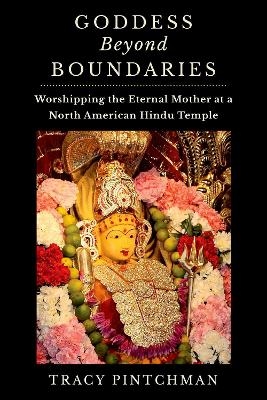
A Thousand Teachings
State University of New York Press (Verlag)
978-0-7914-0944-2 (ISBN)
Śaṅkara and the great Abhinavagupta are generally regarded as the two greatest thinkers in the long history of Indian philosophy. Sankara represented Advaita Vedanta, a non-dualistic view of ultimate reality. Most of his works are commentaries on classics of Indian thought. A Thousand Teachings is the only non-commentarial work that can be attributed to him; the other independent writings ascribed to him are probably spurious.
Sengaku Mayeda, Professor and Chairperson of the Department of Indian Philosophy and Buddhist Studies at the University of Tokyo, is the world's foremost authority on the Upadesaasahasri. With this translation and an extensive introduction to Sankara's life and thought, he makes this classic of Indian philosophy accessible to a wider readership.
FOREWORD
PREFACE
ABBREVIATIONS
An Introduction To The Life And Thought Of Sankara
I. The Life And Works Of Sankara
II. Sankara's Central Doctrine And His Position In The History Of The Vedanta
III. Atman's Identity With Brahman
A. Theological and Cosmological Approach
1. A Cosmological Proof of the Identity
2. Characteristics of Sankara's Cosmological View
3. Sankara's View of Gross Elements
B. Psychological and Epistemological Approach
1. Structure of the Individual
2. Psychology of External Perception
3. Semantic Analysis of Perception
4. Psychology of Internal Perception
5. Four States of Atman
C. Exegetical Approach
1. The Means of Knowledge
2. The Sentence "Tat Tvam Asi"
3. An Exegetical Method: Anvaya and Vyatireka
4. Later Advaitins' Exegetical Method
5. Discontinuance of Sankara's Method
6. The Sentence "Aham Brahmasmi"
IV. Transmigration And Final Release
A. Transmigration
B. Final Release
C. Transmigrator
D. Avidya
1. Nature of Avidya
2. The Locus and the Object of Avidya
3. A Theoretical Defect in Avidya
E. The Means to Final Release
F. Sankara's View of Ethics
A Thousand Teachings(Translation And Notes)
I. Metrical Part (Padyabandha)
1. Pure Consciousness (Caitanyaprakarana)
2. Negation (Pratisedhaprakarana)
3. The Lord (Isvaraprakarana)
4. "I"-notion (Ahampratyayaprakararia)
5. Suspicion of Urine (Mutrasaikaprakarana)
6. Having Cut (Chittvaprakarana)
7. Located in the Intellect (Buddhyarudhaprakarana)
8. The Nature of Pure Consciousness (Citisvarupaprakarana)
9. Subtlety (Suksmataprakarana)
10. Seeing (Drsiprakarana)
11. The Quality of Being the Beholder (Iksitrtvaprakarana)
12. In the Sunlight (Prakasasthaprakarana)
13. Eyelessness (Acaksustvaprakararana)
14. Dream and Memory (Svapnasmrtiprakarana)
15. One Thing Cannot Be Another (Nanyadanyatprakarana)
16. Consisting of Earth (Parthivaprakarana)
17. Right Thought (Samyanmatiprakarana)
18. Thou Art That (Tattvamasiprarkarana)
19. Annihilation of Fever (Jvaranasaprakarana)
II. Prose Part (Gadyabandha)
1. How to Enlighten the Pupil (Sisyapratibodhanaprakarana)
2. Awareness (Avagatiprakarana)
3. Parisamkhyana Meditation (Parisamkhyanaprakarana)
Index
| Übersetzer | Sengaku Mayeda, John M. Koller |
|---|---|
| Zusatzinfo | Total Illustrations: 0 |
| Verlagsort | Albany, NY |
| Sprache | englisch |
| Maße | 152 x 229 mm |
| Gewicht | 399 g |
| Themenwelt | Geisteswissenschaften ► Religion / Theologie ► Hinduismus |
| ISBN-10 | 0-7914-0944-9 / 0791409449 |
| ISBN-13 | 978-0-7914-0944-2 / 9780791409442 |
| Zustand | Neuware |
| Haben Sie eine Frage zum Produkt? |
aus dem Bereich


